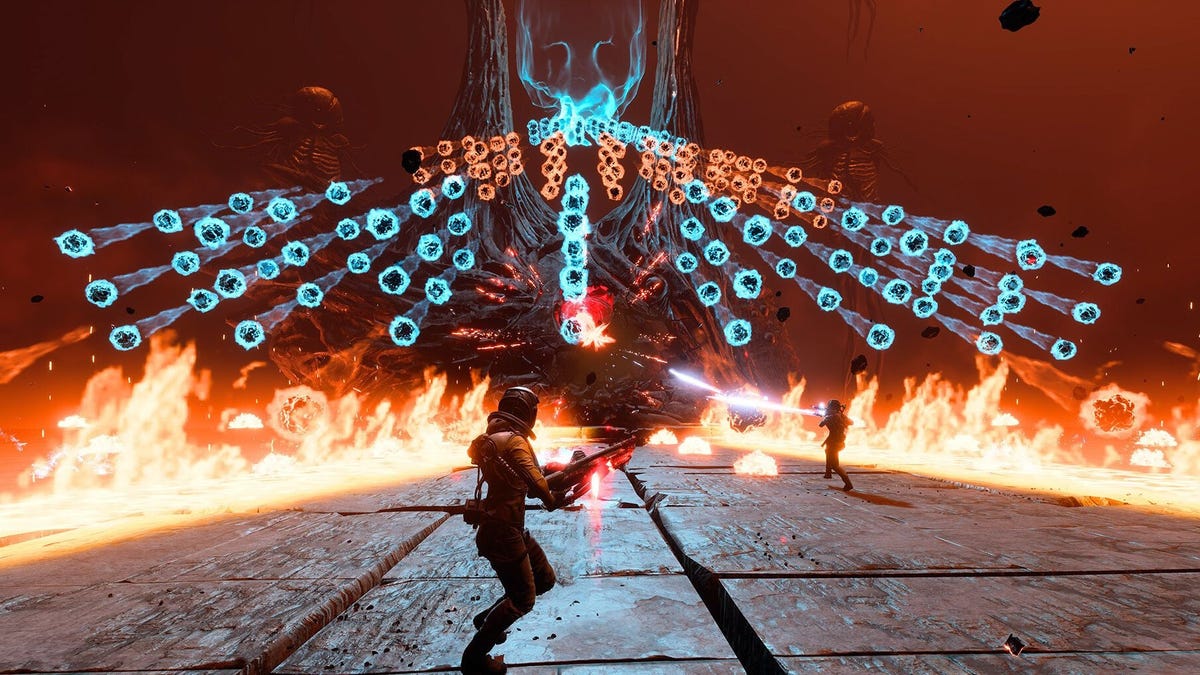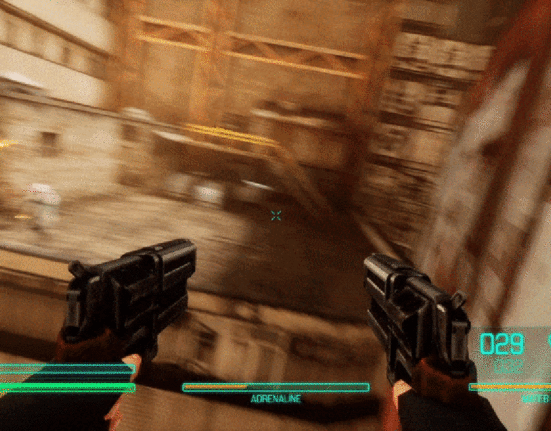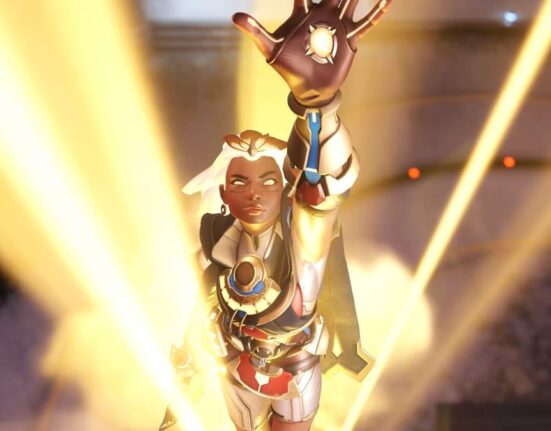Returnal is an incredibly good game, and I am incredibly bad at Returnal. What makes it such a joy, whether in its original form on PlayStation or in this new PC version, is that being bad at it barely dents at its incredible appeal and overwhelming replayability.
For those arriving afresh to 2021’s PS5 title, this is Sony-owned Housemarque’s exquisite combination of big-budget third-person shooter, with the sensibilities of an indie roguelite. Which is to say, every time you die at the hands of the writhing alien horrors, you start right back at the crash site of your spaceship, your progress lost, but for the permanent upgrades and improvements you’ve perhaps made in previous runs.
Selene Vassos is a space pilot whose ship crashes on Atropos, after she goes rogue in her pursuit of something called the White Shadow signal. But on her very first venture out into the overgrown ruins of the area, she discovers…her own dead body. There are recordings she’s previously created and left for herself to hear, seemingly aware that at certain points she loses her memory. Then on your first time dying at the hands tentacles of a local monster, you find yourself reliving the crash before awakening back on your ship. It’s a time loop, and one where the planet you’re on reshapes itself each time you set out.
And set out again you will, the game’s difficulty set deliberately high, such that in your earliest runs you’re close to helpless, given your lack of a melee weapon, the potato gun you begin with, and the way the doors keep locking behind you, sealing you in enormous arenas with a vast, red lion-octopus thing that pins you down as it tears you into chunks. And yet you keep going. And going. And going, getting slightly better at the game, while being rewarded with slightly better starting equipment. Perhaps a bonus item that heals you, or something to skewer enemies with spikes, or it could be entirely new traversal equipment.

What’s so important about all of this—even if you’re someone (like me) averse to the whole Dark Souls scourge on gaming, and who would rather belly-flop onto railings than do yet another boss fight—is that it’s so outrageously compelling. Both in 2021, and today, this is a game that always feels eminently fair, where every failure is entirely on you, and yet constantly gives you the feeling that next time, next time you’ll get it. You don’t. In fact, you do far worse than last time. But you laugh it off, and head out yet again, because goddammit, it’s just so much fun to play.
OK, so obviously if you’re familiar with the game, what you want to know most of all right now is how does it hold up on PC? The joyful answer is: tremendously. This is unquestionably a very demanding game, and I feared that I would need to reduce my computer’s setup to be more in line with the far lower television resolutions and scales a console demands, but none of that was true.
My PC is pretty decent, although ever-more modest: AMD Ryzen 5 5600X, 32GB RAM, with a GeForce RTX 3070. It’s usually able to run most games close to full specs, albeit with the fancier bells and whistles toned down. Returnal informed me it wanted to run things at “Epic,” about which I was somewhat dubious, before realizing it was intending to do this at 3440×1440. Ha, yeah, sure. And then it did. And for the most part, it’s delivered that at a pretty solid 55-60FPS. Which has blown me away—aren’t these console ports supposed to chug along at 25FPS on minimum settings until at least the third patch?
I say for the most part, because I have had a couple of moments of slowdown, extremely busy scenes where framerates have noticeably dropped, or where the GPU usage has spiked so high my whole PC starts to groan. But these have been rare, and let’s not forget I’m running the whole thing at full specs, in ultra-widescreen. (It even offers support for 32:9 Super Ultrawide, should you have a monitor that mad.) Of course, that’s my PC, and I don’t have the facilities to do wider testing—your mileage may vary, and with any PC release, there are hardware combinations that meet issues.

If you want to get hardcore with your hardware, Returnal PC offers a wealth of toggles, including NVidia’s DLSS and NIS, and AMD’s FSR, to boost framerates, along with options for ray-traced shadows and reflections, if you really like it when your GPU starts to wheeze. Beyond this, you can tweak every detail of lighting, environmental details, and post-processing options, with the option to have FPS, CPU, GPU, temperatures and RAM use all live on screen while you’re perfecting your setup. It really is a master class in how to deliver a top-end game to PC users, somewhat ironically coming from a console company.
Oh, and if you want to get the full experience, you can hook up a PS5 DualSense controller to your PC, and get all the same haptic feedback and trigger witchcraft that comes with the console version. Personally, I opted to play mouse/keyboard, having already spent a ludicrous number of hours playing the PS5 version, and really appreciated the far greater aiming precision of God’s own gaming setup. With dash on Shift and melee on middle mouse, there wasn’t really anything to miss but for the haptic sensation of rain falling all around me.
This PC port also offers co-op play, and the endless challenge mode of the Tower of Sisyphus, so it’s pretty much identical to the PS5’s version, just at resolutions that’ll make your console chums cry into their controllers.

I’m really pleased to have returned to Returnal, even if it has been a lesson in just how awful I am at the game. It’s just so much fun to play, even when you’re failing, and that’s a rare and precious thing—something too often forgotten in gaming since the days of the arcade. Goodness me, if I had to stick in another quarter every time I lost, I’d be flat-broke by now, and happy about it.
Returnal drip-feeds you progress just often enough to leave you feeling like progress is always achievable, but at a pace slow enough that you do something more important: get better at it through practice. Enemies that felt impossibly deadly at the start become brushed aside not because you’ve now got a vast arsenal of weapons and seventy times more health—you just don’t—but because you got good at beating them. That’s a tremendously satisfying experience.
In fact, the whole game is a tremendously satisfying experience. From the wonderful alien design, to the slow-burning storyline and its blank-faced staring astronaut, to the satisfying array of weapons, and perhaps most importantly, to the way the statues crumble when you hit them, this is something utterly solid, and eternally compelling. And unless my rig proves a fluke, finally a console-to-PC port to celebrate on day one.







Leave feedback about this